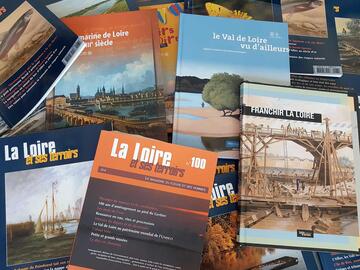
06/03/2025
[Fr] Décès de Philippe Auclerc
C'est avec tristesse que nous avons appris aujourd'hui le décès de Philippe Auclerc, co-fondateur de la maison d'édition "Loire et terroirs" et rédacteur...
Published on 11 May 2015 - Updated 24 July 2015
Cet article date d'il y a plus de 9 ans
The strategic location of the spectacular 65-km stretch of the Middle Rhine Valley between Bingen, Rüdesheim and Koblenz, as an artery of transport, and the prosperity it engendered are reflected in its sixty or more little towns, its many terraced vineyards and the ruins of the castles that once defended its trade. This is a cultural landscape shaped by the hand of man over the course of the centuries, an outstanding expression of Western Europe’s cultural and political evolution.
In 2000, the Loire Valley was inscribed on the World Heritage List – an inventory reflecting the richness and diversity of the planet’s cultural and natural heritage. This year, 15 years later, Mission Val de Loire extends you a monthly invitation to acquaint yourself with other World Heritage sites, which are also our heritage.
As a communication route, the Rhine has provided the European continent with a north-south link since prehistoric times, fostering trade and cultural exchanges that led to the establishment of new settlements, which, huddled together in a small area, gradually came together to form a string of villages and little municipalities.
The valley’s steep slopes have been laid out in terraces for growing vines for over a thousand years.
The landscape is dotted with some forty castles and fortresses built over the course of the centuries. The late 18th century was an era when sensitivity to nature’s beauty was at its height: the often breathtaking panorama of the Middle Rhine Valley, along with the many ruined castles atop its hillsides, was a major source of inspiration for the Romantics, who, in their turn, had considerable influence on the form taken by restoration and reconstruction operations in the 19th century.
The Upper Middle Rhine Valley and the Loire Valley both took part in the European FEDER “Vitour” projects between 2005 and 2012. Since then, informal exchanges between members of this network of World Heritage European vineyards have continued, with the hope of launching a new European project.